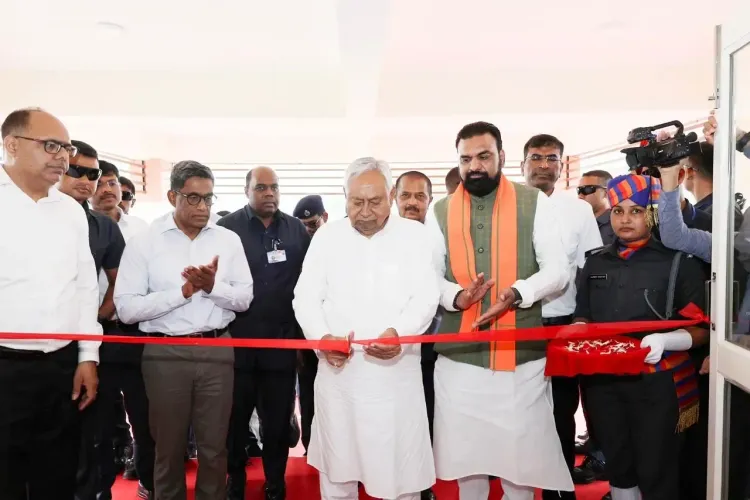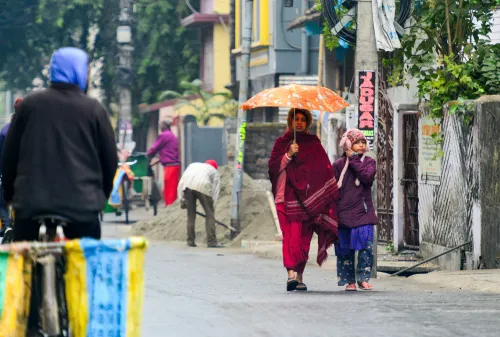Did Bihar CM Nitish Kumar Just Unveil the New SDRF Headquarters in Patna?

Synopsis
Key Takeaways
- New SDRF headquarters inaugurated in Patna to enhance disaster response.
- Facility includes modern training and residential amenities.
- Will reduce reliance on external training facilities.
- Crucial for quick responses to natural disasters.
- First phase completed, second phase delayed.
Patna, Sep 19 (NationPress) The Chief Minister of Bihar, Nitish Kumar, inaugurated a newly built headquarters for the State Disaster Response Force (SDRF) at Dilawarpur in the Patna district on Friday.
Deputy Chief Ministers Samrat Choudhary and Vijay Kumar Sinha, along with Chief Secretary Pratyay Amrit and various Ministers and senior officials, were present at the inaugural ceremony.
During his address, Nitish Kumar stated that the state government has been dedicated to enhancing disaster management capabilities in Bihar, and the new facility would greatly improve the training, efficiency, and accommodation for SDRF personnel.
Founded in 2010 following the model of the National Disaster Response Force (NDRF), the SDRF has been instrumental in conducting relief and rescue operations in a state that frequently faces disasters.
Previously, the lack of an in-house training facility often compelled SDRF personnel to rely on training centers outside the state.
The establishment of this new campus intends to eliminate that reliance.
The modern complex features an administrative building, an auditorium with a capacity of 500, a training center for 290 trainees, and a rapid disaster response team-building unit for 30 personnel, as well as a national-level swimming pool specifically designed for flood-relief training, residential facilities for families of 108 officers and 150 employees, barracks for 330 soldiers, a mess hall, and accommodations for the commandant and deputy commandant.
Officials noted that this advanced center will improve the preparedness of the SDRF and diminish dependence on external training institutions, enabling Bihar to respond more effectively to natural disasters like floods, storms, and earthquakes.
The first phase of construction, which included the administrative building and residential quarters, was completed earlier this year.
The second phase, which includes the auditorium and national-level swimming pool for flood-relief training, along with additional training facilities and barracks, was initially set for completion in June 2025 but has faced delays.
Officials underscored that the SDRF plays a crucial role during the monsoon season, especially in managing floods and conducting rescue missions.
Personnel are strategically deployed along major rivers to avert tragedies, evacuate stranded residents, and provide necessary assistance.
With these improved facilities, the SDRF is expected to enhance its response speed and efficiency in addressing emergencies such as floods, storms, and other disasters.










